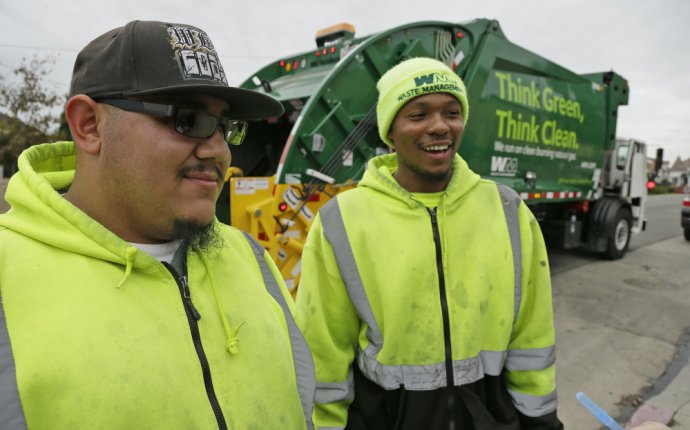
How to Become a Garbage truck Driver?
 Decide if you have the temperament for collecting garbage. You must be able to lift heavy objects, handle difficult shapes (people throw out anything and everything) and you must be happy to get dirty. Be certain that you are not overly sensitive to smells. Do you mind working outdoors no matter whether it is boiling hot, sleeting rain or a blizzard? Do you mind the early mornings or late nights that might be expected of you? Do you have the temperament to deal with abusive and thoughtless homeowners who expect you to toss their unwanted gutted bathroom fittings into the compactor?
Decide if you have the temperament for collecting garbage. You must be able to lift heavy objects, handle difficult shapes (people throw out anything and everything) and you must be happy to get dirty. Be certain that you are not overly sensitive to smells. Do you mind working outdoors no matter whether it is boiling hot, sleeting rain or a blizzard? Do you mind the early mornings or late nights that might be expected of you? Do you have the temperament to deal with abusive and thoughtless homeowners who expect you to toss their unwanted gutted bathroom fittings into the compactor?
 Consider the skills you might need to possess. While formal qualifications are not usually necessary and most of your training will be completed on-the-job, you will need certain skills. Such skills might include a truck driving license, ability to drive a forklift, operate compacting equipment, mechanical repairs to devices used on the truck, etc.
Consider the skills you might need to possess. While formal qualifications are not usually necessary and most of your training will be completed on-the-job, you will need certain skills. Such skills might include a truck driving license, ability to drive a forklift, operate compacting equipment, mechanical repairs to devices used on the truck, etc.
Find out if there is an age limit. Some places will only employ people aged over 18. If you are a mature-aged worker, you should be able to apply as long as you are physically fit. If you're still at school, speak to a careers counselor about how to apply for a position. If you are already in the employment market, contact your local municipality to find out who it has contracted its garbage collection to. Or it may be as obvious as checking the Yellow Pages for phone numbers. Ring the businesses and ask them if there are any openings. Also ask them what skills are expected. Ask also if they provide on-the-job training in any of these skills.
Ring the businesses and ask them if there are any openings. Also ask them what skills are expected. Ask also if they provide on-the-job training in any of these skills.
Understand that if you would prefer to be self-employed, contact your local small business association and seek help on setting up a garbage collection service. You may need to specialize in a niche not already serviced, such as industrial waste collection, recycling etc. The more open you are to different concepts of garbage and ways of reusing it, reducing it and recycling it, the more successful your own business is likely to become in this environment-conscious age.
 Apply for permits if necessary. If you handle biological agents, toxic, hazardous or flammable wastes, you may need special licensing to prove that you have received adequate training in handling these objects. If you are collecting waste from a hospital, medical/veterinary practise or industrial site, this is most likely to be an issue.
Apply for permits if necessary. If you handle biological agents, toxic, hazardous or flammable wastes, you may need special licensing to prove that you have received adequate training in handling these objects. If you are collecting waste from a hospital, medical/veterinary practise or industrial site, this is most likely to be an issue.
Go for a job interview with a business, and you may need to sit a physical test. Ask the business what this consists of and consider if you need to ask your doctor any questions about previous ailments or illnesses that might cause problems.
Ask your employer what equipment you have to fund yourself, if any. In the main an employer should supply safety equipment but you may be expected to fund some of it yourself. You're up for the whole cost of safety equipment if you run your own business. Such equipment may include steel-capped boots, heavy duty gloves, reflective jackets, hard hats and safety pants.









